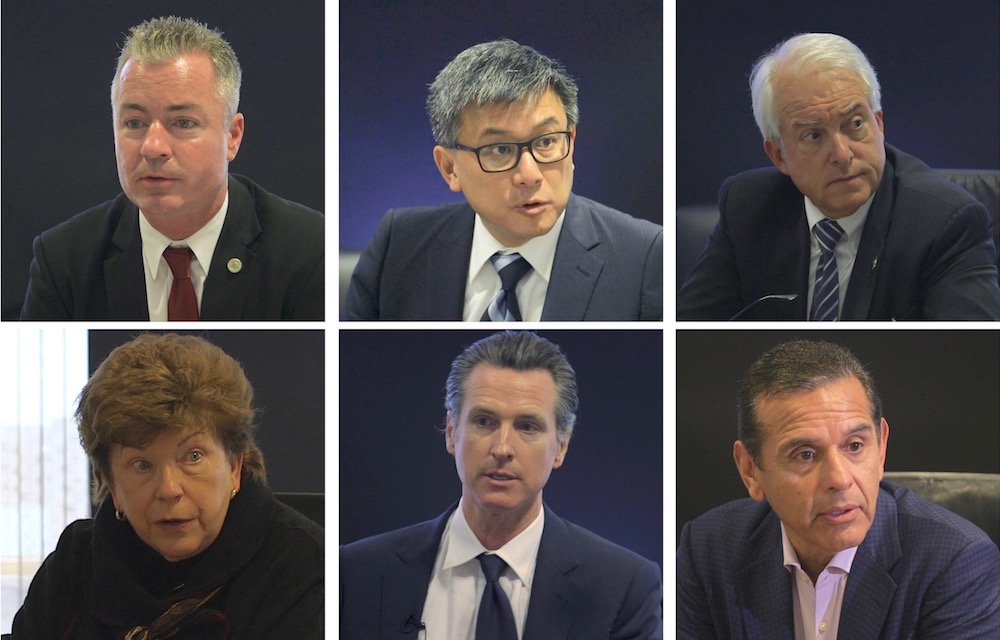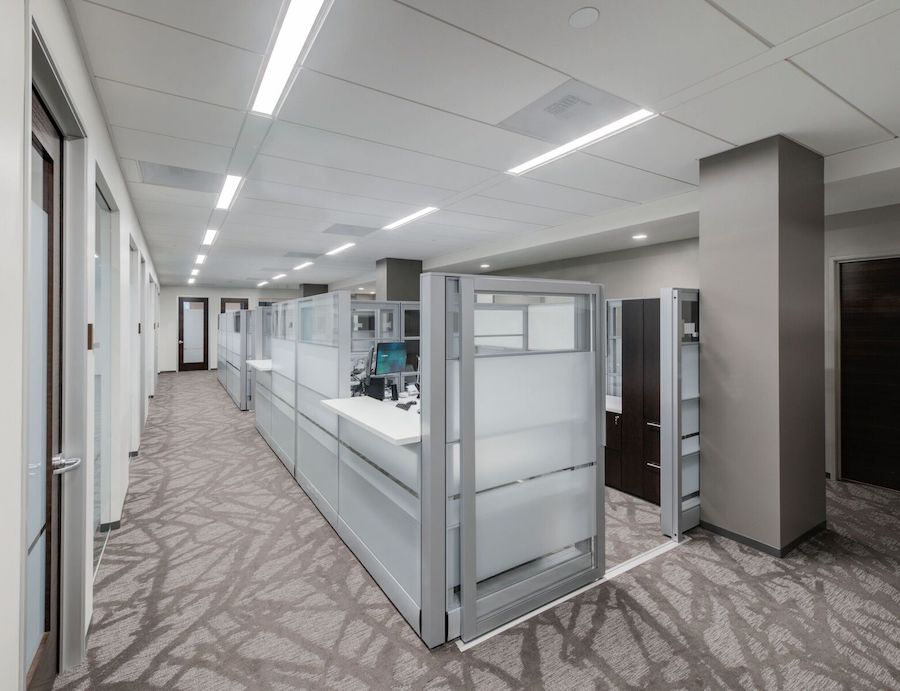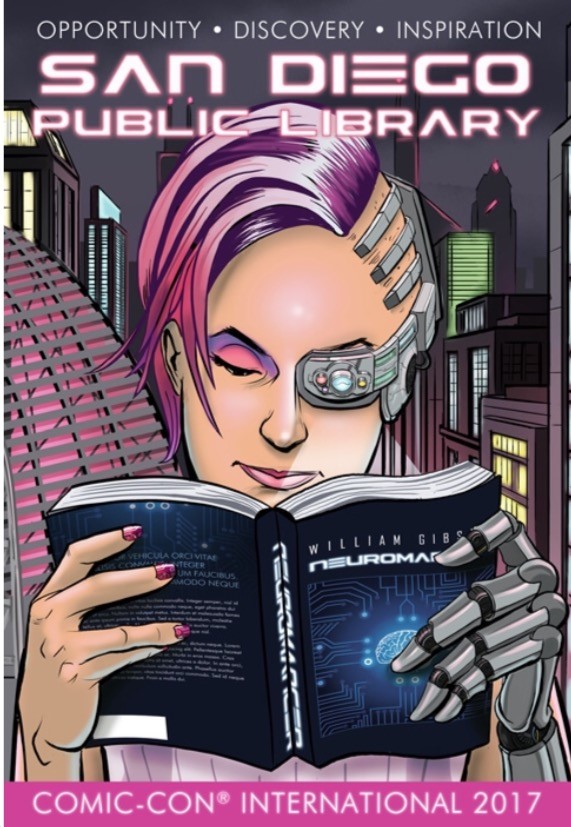Daily Business Report-May 1, 2018
Candidates for California governor, from top left: Republican Travis Allen, Democrat John Chiang, Republican John Cox, Democrats Delaine Estin, Gavin Newsom and Antonio Villaraigosa. (Photos by CALmatters)
Secrets and Seals of Approval
in the California Governor’s Race
By Laurel Rosenhall | CALmatters
What kinds of agreements has the next governor of California made with interest groups that sway decisions in the state Capitol? Voters will never know. The answers lie in a raft of secret questionnaires that candidates complete as they seek endorsements from a range of groups that will lobby them after they’re elected—and remind them of what they committed to before they won.
Labor unions, environmentalists and associations that advocate for gay rights, police and charter schools are among the dozens of groups that have endorsed candidates in the governor’s race. Such seals of approval can come with infusions of campaign cash and help politicians raise their profiles as they seek votes across an enormous state. Public endorsements can serve as a helpful signal to voters, giving a sense of the candidates’ alliances and priorities. But what many voters don’t realize is that the endorsements are more than a sign of affection. They are the result of private concurrence between groups that represent narrow interests and candidates competing to represent the public.
Jessica Levinson, a professor at Loyola Law School and president of the Los Angeles Ethics Commission, compared the secret questionnaires to private conversations with lobbyists, “or any closed-door meeting where you try to extract a promise from a lawmaker in exchange for x.”
“In its worst framing, it feels like extortion: ‘You say this, and therefore you get our [endorsement]. If you don’t say this, you don’t.’ ”
CALmatters asked the six major candidates for governor — Democrats Gavin Newsom, Antonio Villaraigosa, John Chiang and Delaine Eastin, and Republicans John Cox and Travis Allen — to share the questionnaires they’ve completed in seeking endorsements for the June 5 primary election. None did. We also asked several interest groups to share the candidates’ answers. They wouldn’t. Both sides generally agree to keep the records confidential. Some organizations even emblazon their documents with the words “Do not copy.”
The style of the questionnaires varies, with some requesting thoughtful explorations of policy issues and others listing pages of yes/no questions. Some include a “pledge” section — for example, asking candidates to sign their names and promising to “actively and publicly support” workers organizing a union. In some cases, the result is private covenants on such questions as: Will you ban fracking? Limit the growth of charter schools? Support tougher punishments for repeat criminals? Maintain the pension system for government employees?
Getting the answers in writing helps interest groups get what they want after politicians are elected. “If we are lucky enough to endorse the candidate that wins the office, it’s a good place to point back to and a level of accountability for what they said when they were running,” said Jim Araby, executive director of the state’s United Food and CommercialWorkers union, which endorsed Newsom. Its members include grocery-store clerks confronting technological advances that threaten to wipe out jobs, as well as competition from online vendors that are not unionized.
If Newsom is elected and then makes decisions that contradict what he told the union during the endorsing process, Araby said, he wouldn’t hesitate to pull out the questionnaire. “We would have that as a point of reference in any conversation we had with him and his staff. Our union is not afraid to hold people accountable, Democrats or Republicans.”
Two years ago it funded a campaign to oust a Democratic assemblywoman after she voted against the union on two bills. In declining to make any of his completed endorsement questionnaires public, Newsom said the forms don’t allow for the nuances that answers deserve. “I’d rather give you the raw, unvarnished, actual answers that do more than just three sentences that can be taken out of context in a questionnaire,” Newsom said during an interview with CALmatters. He and the other five major candidates each sat for lengthy interviews with CALmatters journalists, going into depth on numerous public policy questions. But none would disclose the forms they’ve completed, saying they’re doing plenty to communicate their positions to voters publicly. “I’ve participated in… 10 forums already,” said Cox, a Republican endorsed by the California Pro-Life Council. “I don’t believe there is any instance when I put something down in a questionnaire… that I wouldn’t say in public.”
Many lobbying groups say keeping the answers out of the public eye allows candidates to be more candid. “We think that if they have to worry about us taking it to the press, sharing it around with people, using it in ways that they wouldn’t feel comfortable with, it may have a chilling effect on the amount they would be willing to share,” said Gary Borden, executive director of the political advocacy arm of the California Charter Schools Association. Charters — public schools that do not have to follow all of the same regulations as traditional campuses — have become a big player in the gubernatorial race.
The charter association has endorsed Villaraigosa, who clashed with teacher unions and took control of several low-performing schools when he was mayor of Los Angeles. Charter supporters have already poured $10.2 million into a fund paying for ads supporting Villaraigosa.The questionnaire may not be the only factor in an endorsement decision. Like most influential groups, the charter schools association also interviews candidates to discuss issues in greater depth. But its questions indicate some key priorities, asking whether candidates support changing the formula for funding schools, limiting charter-school expansion or applying a conflict-of-interest law that school boards must follow to charters, which are now exempt. Villaraigosa said he’s answered dozens of questionnaires in the course of the campaign and doesn’t see the need to make them public. “All of these groups have asked that they be confidential and… that’s what we’ve done,” he said .“We have a lot of transparency in this election, a lot of eyes watching….People have a good view of where we all are.”
Though the charter school group would not disclose candidates’ responses, it shared a blank copy of its three-page questionnaire with CALmatters.Many groups wouldn’t even do that. The Sierra Club, California Teachers Association, Service Employees International Union and California Labor Federation would not provide their blank questionnaires. CALmatters obtained some from other sources. They show that the California Teachers Association asks if candidates will back more regulations for charters, which compete with traditional schools to attract students and the taxpayer funding that comes with them. Many charters employ non-union teachers, an element in the ongoing feud between charter supporters and teacher unions.The teachers association, which endorsed Newsom, also asks candidates if they will oppose using student test scores as an element in determining teacher salaries; support collective bargaining for school employees; and oppose replacing the pension system for public employees with a 401k-style retirement plan.
Teachers association spokeswoman Claudia Briggs said the questionnaire is a tool meant to help union members only. “This is their process,” she said. “Beyond their membership, it’s not a public document and there is no requirement to share it.”
The director of Sierra Club California similarly said the group’s members expect their questions and candidates’ answers to be kept private. “We have a policy of not talking about how they respond to the questionnaires because we promised them in advance we won’t do that,” Kathryn Phillips said, noting that the club instead published an explanation of why it endorsed Newsom. Some groups do not use questionnaires — but still pose questions that are hidden from the public. The California Business Roundtable, which includes 30 large corporations, interviews candidates about their positions on health care, budget and energy policy, then sends the answers to the member companies, said president Rob Lapsley. He declined to say specifically what the group asks.
Other groups post blank questionnaires on their web sites but will not share candidates’ answers: the Howard Jarvis Taxpayers Association, an anti-tax group that has not yet endorsed a gubernatorial candidate, and the California Police Chiefs Association, which endorsed Villaraigosa. One outlier to the secrecy trend is the National Union of Healthcare Workers, which endorsed Newsom and published its questionnaire with his answers. With groups across the political spectrum interested in holding politicians accountable, why not make the process public? Isn’t it supposed to be voters who wield that power in a democracy? Steve Smith, spokesman for the California Labor Federation, said his group has batted the idea around. As an umbrella organization with many unions that are members, Smith said, the change couldn’t be made quickly. But they’ve discussed moving to a model where the questions — and candidates’ answers — are posted online for the world to see. “It’s a pretty broad process right now, but it’s an internal one,” Smith said. “Making it an external one is not out of the realm of possibility.”
CALmatters.org is a nonprofit, nonpartisan media venture explaining California policies and politics.
________________
City Council Waives Fees to Speed
‘Granny Flats’ Construction
sdnews.com
With the goal of increasing San Diego’s housing supply for low- and middle-income San Diegans, the City Council April 30 adopted an additional strategy that supports Mayor Kevin L. Faulconer’s “Housing SD” plan and makes it easier and more affordable for homeowners to build secondary units on their property.
The City Council voted unanimously to waive Development Impact Fees, Facility Benefit Assessment Fees and General Plan Maintenance Fees for the construction of “companion units,” otherwise known as accessory dwelling units or “granny flats.”
Read more…
________________
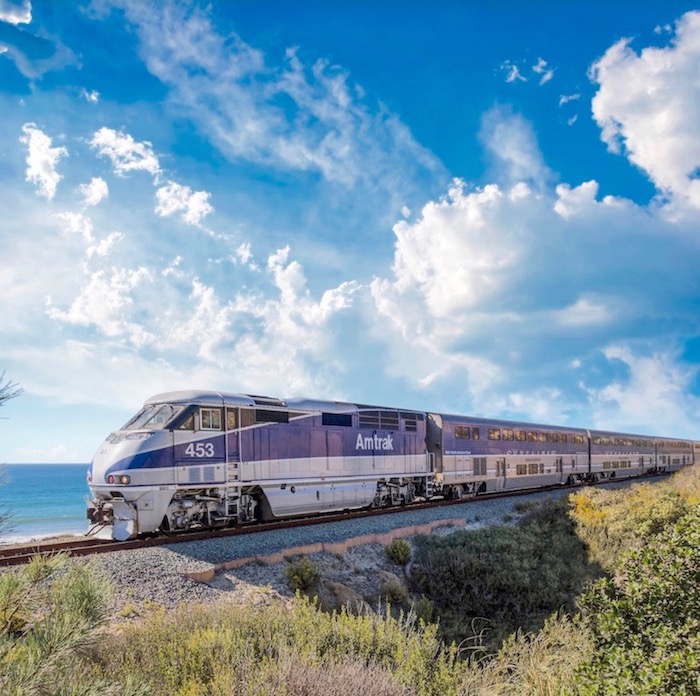
Rail Corridor Agency Awarded $188.3 Million
to Enhance Pacific Surfliner Service
The Los Angeles – San Diego – San Luis Obispo Rail Corridor Agency has been awarded $188.3 million to fund a package of projects that will expand and improve passenger rail service in Southern California, the California State Transportation Agency announced.
The grant includes $147.9 million to address current and future constraints on the northern section of the rail corridor in Ventura, Santa Barbara, and San Luis Obispo counties by constructing additional double track and siding extensions, improving stations and train layover facilities, upgrading signals and switches, and providing incentives to host railroads for improved Pacific Surfliner on‐time performance.
The remaining $40.4 million will fund projects in San Diego County that will improve Pacific Surfliner and COASTER rail service by investing in signal improvements, creating a more robust capital maintenance program, and installing new fencing along the railroad right-of-way. Funding is also provided to conduct a feasibility study for a new maintenance and layover facility for Pacific Surfliner trains in Downtown San Diego.
________________
TechFlow Inc. Selected for Electric Vehicle Demo
Program at Marine Corps Air Station Miramar
TechFlow Inc., a San Diego technical services company, has been selected to provide technical coordination and subject matter expertise for an advanced Vehicle to Microgrid demonstration at Marine Corps Air Station Miramar (MCAS).
The project, funded by the California Energy Commission and led by Lawrence Berkley National Laboratory, is being implemented to demonstrate the value and benefit of transitioning a conventional fleet of fossil fuel vehicles to a fleet of Plug-In Hybrid Electric Vehicles. It is also intended to demonstrate the ability of these vehicles to not only meet the military mission of the base but, at the same time, provide Vehicle-to-Grid energy service to the base’s electrical infrastructure when the vehicles are not in operation but are available at their charging station.
The project is part of a new Microgrid being installed on MCAS Miramar, which is part of the DOD’s initiative to demonstrate increased energy resilience at critical national defense facilities.
________________

Grand Opening May 19 for Five New
Homes at Golden Surf in Carlsbad
San Diego homebuilder New Pointe Communities will host a “Builder’s Dusty Shoes” event on May 19 to celebrate the pending completion of its Golden Surf project in Carlsbad. Guest are invited to tour all five homes from 11 a.m. to 4 p.m.
An infill development, Golden Surf features energy-efficient, detached homes, located at 1020-1040 Camino De Las Ondas at Paseo Del Norte. Interested homebuyers can select from two three-bedroom/two-and-a-half bath homes, two four-bedroom/three-bath homes and one four-bedroom/three-and-a-half bath home. Homes range from approximately 2,300 square feet to 3,300 square feet, and all offer ocean views.
Each home features rooftop solar panels. Other energy efficient elements include LED lighting, high energy efficient HVAC and appliances, low-flow water fixtures and tankless water heaters. Other selling points include no Mello Roos and a low tax base.
Mark Marquez, managing partner of Pacific Sotheby’s International Realty, is marketing Golden Surf, with financing available from Wells Fargo Home Mortgage.
For more information, visit www.goldensurfnewhomes.com.
________________
Scripps Translational Science Institute
Receives $34 million to Advance Medical Research
The Scripps Translational Science Institute (STSI) has received over $34 million in renewed funding from the National Institutes of Health’s National Center for Advancing Translational Sciences to advance medical research and clinical care through genomic and digital technologies. This is the third five–year Clinical and Translational Science Award (CTSA) to be awarded to STSI, which is part of The Scripps Research Institute.
________________
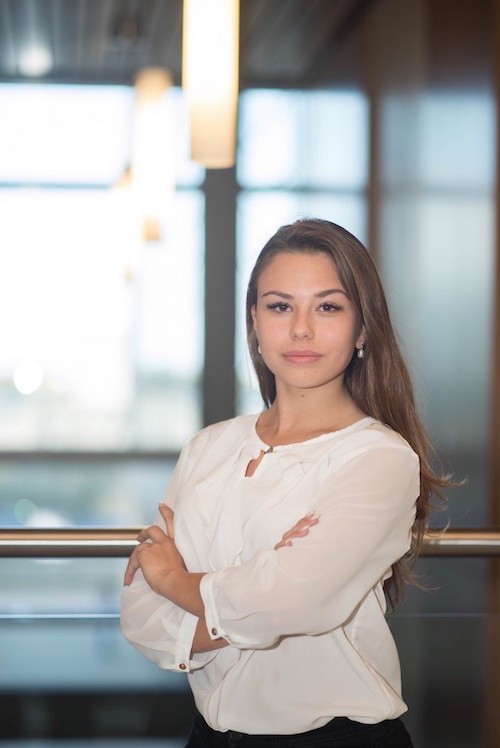
San Diego Community College District
to Honor Top Students at May 2 Reception
The San Diego Community College District (SDCCD) will salute its highest achieving students on Wednesday, May 2, during the 31st annual Honors Program Reception from 11:30 a.m. to 1:30 p.m. at The Prado in Balboa Park.
The SDCCD’s Honors Program offers a more challenging curriculum that helps students transition seamlessly to some of the top universities in the country, with past honorees going on to earn bachelor’s degrees at Stanford, doctorates at Princeton, and law degrees at Yale. Students also are afforded access to designated honors counselors, an opportunity to present research at conferences, and a chance to apply for expanded scholarship opportunities.
Collectively, San Diego City, Mesa, and Miramar colleges provided their top students a total of more than $645,000 in scholarships this past year.
Student Karina Tarasova, named to the Phi Theta Kappa All-California Academic Team, signed up for the Honors Program shortly after arriving at Mesa College. She’s now looking at her transfer options, having so far been accepted to Boston University, the University of Michigan, UCLA, and USC.
“The Honors Program was a great experience for me,” said Tarasova, who has a 4.0 GPA, has served as president of the Phi Theta Kappa Honor Society and vice president of the Business Club while volunteering with Soldiers Who Salsa and the campus TerraMesa Environmental Club, among others. “Without it, I wouldn’t have been involved as much in the community and in leadership events. The program challenges you to raise your expectations.”
________________
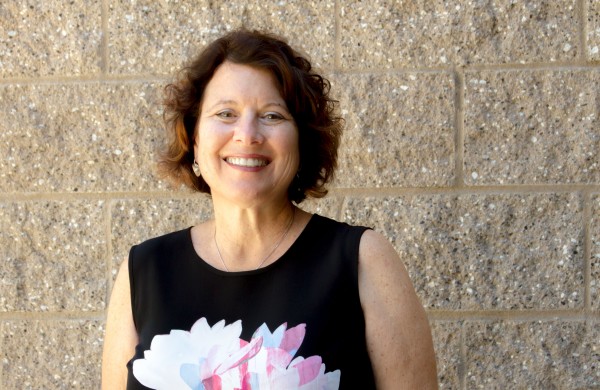
Rabbi Laurie Coskey Named Executive Director
of San Diego Gateway to College & Career Program
Rabbi Laurie Coskey joins San Diego Continuing Education as the new executive director of the San Diego Gateway to College & Career program.
The program offers individual counseling in a case management style providing more individualized attention and mentoring; customized job search, paid internships, and community service opportunities for young adults ages 18-24 who are neither in school nor working.
Coskey has spent more than 30 years in professional positions of leadership addressing the needs of San Diego families and children — including more than 15 years at the Interfaith Center for Worker Justice and most recently at the United Way of San Diego County.
She recently completed her service on the San Diego Workforce Partnership’s Policy Board, the Regional Task Force for the Homeless Board, and the San Diego College and Career Pathways Trust Grant leadership team. As a rabbi she has served the life cycle needs of the LGBT community throughout her career and has actively advocated for LGBT rights.
________________
Construction Begins on Encinitas
Segment of the Coastal Rail Trail Bikeway
Construction broke ground Monday on a 1.3-mile segment of the Coastal Rail Trail bikeway in Encinitas, with crews beginning preliminary construction activities along San Elijo Avenue in the community of Cardiff-by-the-Sea. Preliminary construction activities include removing vegetation, verifying underground utilities, and installing fencing around environmentally sensitive areas. This segment of bikeway will link the community of Cardiff-by-the-Sea with downtown Encinitas.
The Encinitas segment of the bikeway is a critical component of the 44-mile Coastal Rail Trail, a bike route that will run from the city of Oceanside to Downtown San Diego, and will help fill the bike connectivity gaps in Encinitas.
The $10 million bike project is part of Build NCC, a collaborative effort between the San Diego Association of Governments (SANDAG) and Caltrans District 11.
________________
Personnel Announcements
Ron Frankel Named New CEO of VizExplorer
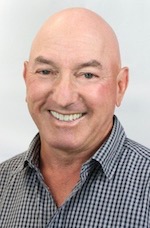
VizExplorer, a provider of analytics, data visualization and operational intelligence solutions, has appointed technology veteran Ron Frankel as the company’s new CEO. Former CEO Ian Bonner will assume the role of executive chairman of the board, and will partner with Frankel as VizExplorer continues its growth trajectory.
“I’m excited to join VizExplorer at this pivotal point in its transformation, and to lead it into the next phase of maturation,” said Frankel. “I am impressed with what the team has delivered to date, and believe strongly in the application of its technology to solve a range of data needs across many types of businesses,” he added.
Frankel joins VizExplorer with a wealth of technology industry experience as a public company chief executive, board member, advisor and investor in the software industry.

